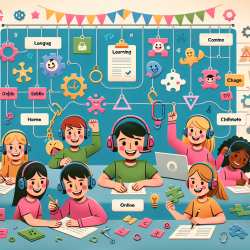Introduction
In the United States, the income-achievement gap is a persistent issue, further exacerbated by the COVID-19 pandemic. The research article "Disrupting links between poverty, chronic stress, and educational inequality" provides insights into how poverty-related stress impacts educational outcomes. As practitioners, understanding these mechanisms is crucial for implementing effective interventions that can bridge this gap.
The Neurobiology of Poverty
Poverty is more than just an economic condition; it is a form of early life stress that alters neurobiology. Children in poverty face chronic stressors that affect their brain development, particularly in areas related to executive function and emotional regulation. This results in heightened threat detection and impaired reward processing, which can hinder academic performance.
Educational Policies and Practices
The research highlights the need for educational policies that address these neurobiological impacts. Social Emotional Learning (SEL) is one such approach that can help children develop skills necessary for emotional regulation and decision-making. SEL programs have been shown to improve both social-emotional and academic outcomes, particularly for children from low-income backgrounds.
Implementing SEL in Schools
- Focus on skill development for young children through modeling and sociodramatic play.
- Incorporate Morning Meetings and inquiry-based learning for elementary students.
- For adolescents, provide opportunities for community service and discussions on relevant topics.
These practices not only enhance academic readiness but also promote a supportive school environment that can buffer against the effects of chronic stress.
Further Research and Recommendations
While SEL shows promise, more research is needed to understand its biological impacts, such as changes in stress physiology and neural function. Practitioners are encouraged to stay informed about emerging studies and consider integrating neuroscience-based practices into their interventions.
To read the original research paper, please follow this link: Disrupting links between poverty, chronic stress, and educational inequality.










